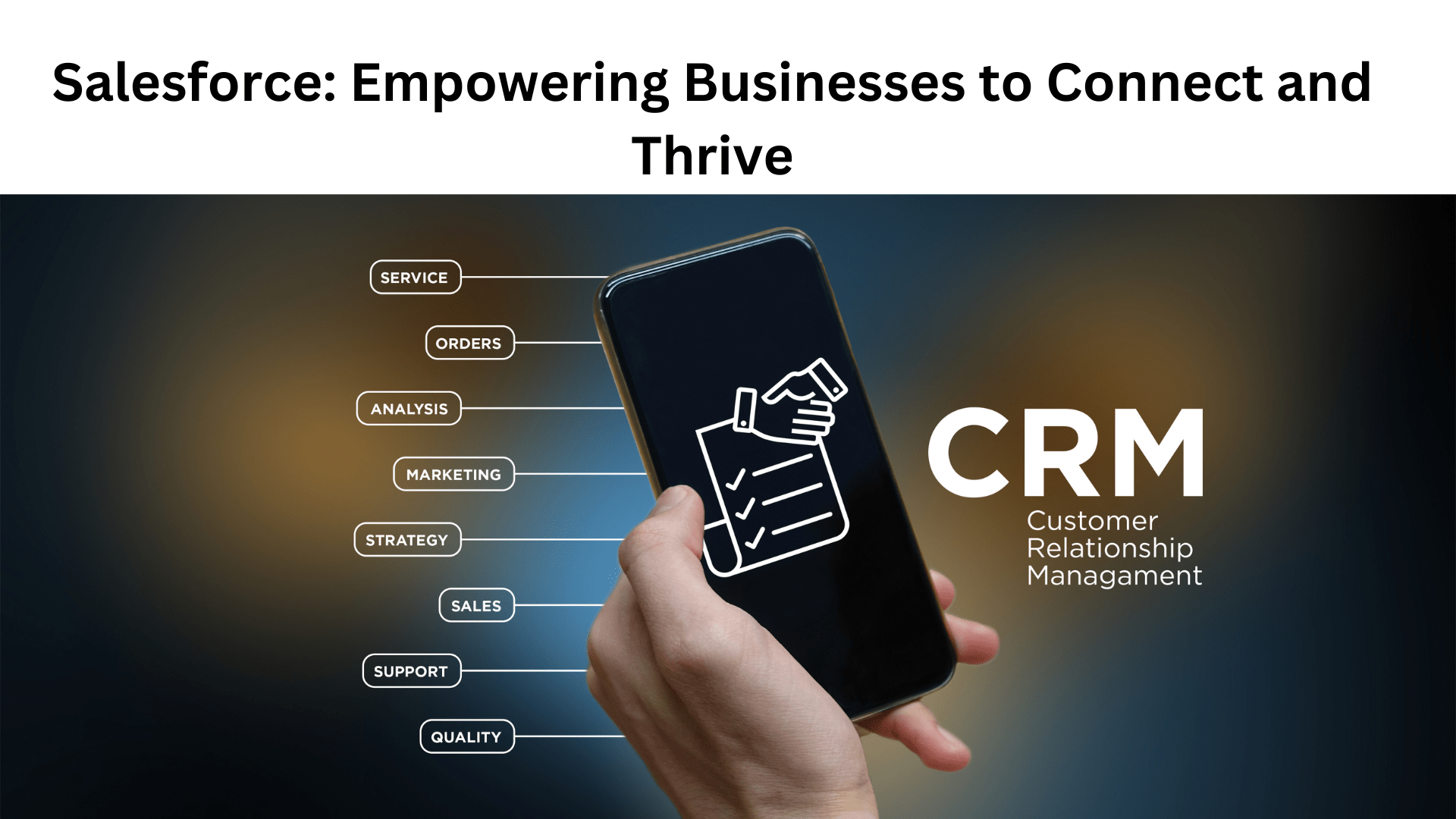In today’s fast-paced business landscape, customer relationships are the cornerstone of success. To effectively manage and nurture these relationships, organizations rely on powerful tools and platforms. One such platform that has revolutionized customer relationship management is Salesforce. In this blog post, we will explore what Salesforce is, why it is important, and how it has transformed the way businesses connect with their customers.
I. Understanding Salesforce: Salesforce is a cloud-based customer relationship management (CRM) platform that provides companies with a unified view of their customers and a comprehensive suite of tools to manage sales, marketing, service, and more. It offers a centralized platform that enables businesses to streamline their operations, enhance customer engagement, and drive growth.
II. The Importance of Salesforce:
- Enhanced Customer Relationships: Salesforce helps businesses build strong and lasting relationships with their customers. By centralizing customer data, interactions, and preferences, organizations can gain valuable insights to deliver personalized experiences, anticipate needs, and provide exceptional service.
- Efficient Sales and Marketing: Salesforce empowers sales and marketing teams with robust tools for lead management, opportunity tracking, and campaign automation. It enables teams to collaborate, track progress, and make data-driven decisions, leading to increased efficiency, better conversion rates, and higher revenue.
- Seamless Service and Support: With Salesforce Service Cloud, businesses can deliver exceptional customer support. Service agents have access to a unified view of customer cases, enabling them to provide quick resolutions and personalized support across multiple channels, such as phone, email, social media, and live chat.
- Scalability and Flexibility: Salesforce is designed to scale with businesses of all sizes. Its cloud-based infrastructure allows organizations to easily adapt to changing demands, add or remove users, and customize the platform to fit their unique processes and workflows.
- Integration Capabilities: Salesforce offers a wide range of integration options with other business systems, such as ERP, marketing automation, and collaboration tools. This integration capability enables businesses to create a unified ecosystem, eliminating silos and enabling seamless data flow across departments.
- Data-driven Decision Making: Salesforce provides powerful reporting and analytics capabilities, allowing businesses to gain actionable insights from their customer data. Through real-time dashboards, organizations can track key performance indicators, monitor sales pipelines, and make data-driven decisions to drive growth and success.
III. Real-World Success Stories: Highlight some real-world examples of businesses that have leveraged Salesforce to achieve remarkable results. Discuss how Salesforce has helped these organizations streamline their operations, improve customer satisfaction, and drive revenue growth.
Salesforce has emerged as a game-changer in the CRM landscape, empowering businesses to connect with their customers in meaningful ways. From small startups to multinational corporations, Salesforce has proven its value in driving growth, enhancing customer relationships, and improving operational efficiency.
By leveraging Salesforce’s comprehensive suite of tools and its cloud-based infrastructure, businesses can unlock their true potential, adapt to evolving market dynamics, and thrive in the digital age. Embrace Salesforce and unlock a world of possibilities for your organization.
